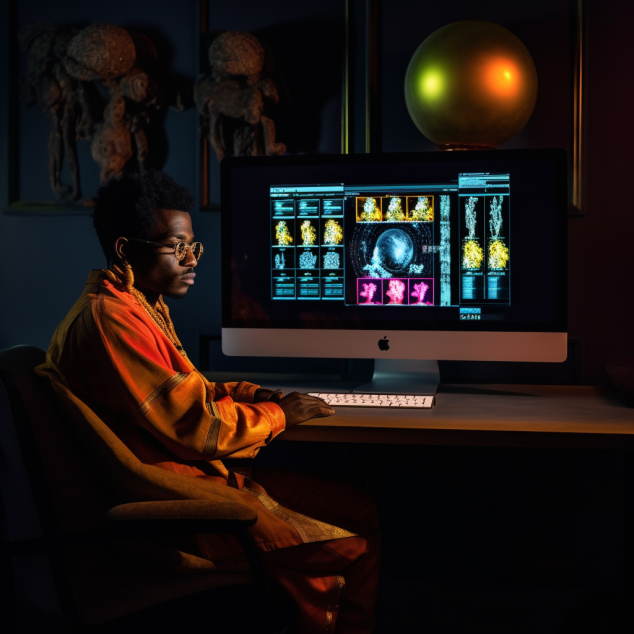Image generated by AI.
Running a website has become an essential part of business and personal ventures in the digital age. However, the process of creating, managing, and updating web content can often be time-consuming and technically challenging. To address these hurdles, artificial intelligence (AI) technology has emerged as a game-changer, empowering website owners to streamline their operations and enhance user experiences. In this blog post, we’ll explore how AI-driven text and image generation can make website management easier than ever before.
Automating Text Generation:
AI-powered natural language processing (NLP) models have reached incredible heights in recent years, enabling machines to understand and generate human-like text. Implementing AI in website management allows for the automation of various text-related tasks, such as:
“Write a blog post about making websites easier to run using ai for text and image generation”
a) Content Creation: AI can generate engaging blog posts, articles, and product descriptions, significantly reducing the burden on website owners. By providing relevant input, such as topic keywords and desired tone, AI algorithms can create high-quality content that matches the website’s style and voice.
b) Language Translation: With AI, website owners can effortlessly translate their content into multiple languages. Advanced machine translation models can accurately convert text from one language to another, ensuring global accessibility and expanding the website’s reach.
c) Chatbots and Customer Support: AI-powered chatbots offer personalized and immediate customer support. These virtual assistants can understand user queries, provide relevant information, and even engage in natural conversations, enhancing the overall user experience on the website.
Enhancing Image Generation:
Images play a crucial role in website design, branding, and visual storytelling. AI technology has revolutionized image generation by offering powerful tools for optimization, customization, and automation:
a) Image Editing and Enhancement: AI algorithms can automatically enhance and optimize images, improving their quality, resolution, and composition. These algorithms can adjust brightness, contrast, and color levels, as well as remove noise and blemishes, resulting in visually appealing images that captivate website visitors.
b) Custom Graphics and Logos: AI-based graphic design tools enable website owners to create professional-looking logos, banners, and illustrations without any prior design experience. These tools use machine learning to analyze user preferences and generate customized visual assets that align with the website’s branding.
c) Automated Image Tagging: Manually tagging images for search engine optimization (SEO) purposes can be a time-consuming task. AI-powered image recognition systems can automatically analyze the content of an image and generate accurate and relevant tags, facilitating improved indexing and discoverability on search engines.
Content Personalization and Recommendation:
AI-driven algorithms can analyze user behavior, preferences, and interactions on a website to deliver personalized content recommendations. By collecting and analyzing vast amounts of data, AI can offer tailored product suggestions, related articles, or recommended resources to enhance user engagement and drive conversions.
Conclusion:
Artificial intelligence has significantly transformed website management by automating text and image generation processes. The implementation of AI-powered tools and algorithms not only reduces manual efforts but also enhances the overall user experience by providing personalized content recommendations and engaging visuals. As AI continues to advance, website owners can expect even more innovative solutions to simplify the management and maintenance of their online platforms. Embracing these technologies allows website owners to focus on strategic aspects of their businesses while delivering exceptional user experiences in an increasingly competitive digital landscape.

